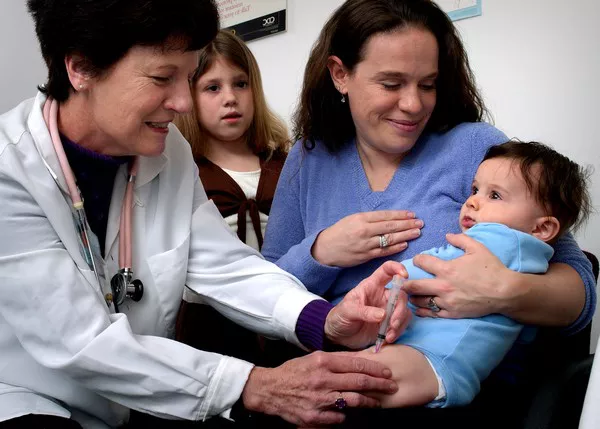The FDA has approved a groundbreaking heart stent designed specifically for infants and young children, offering hope to families whose children are born with congenital heart defects. This new device, developed by California-based biotech company Renata, could drastically reduce the need for multiple open-heart surgeries throughout a child’s life, improving both outcomes and quality of life.
Each year, approximately 40,000 babies in the U.S. are born with congenital heart defects, according to the CDC. In many cases, the defects require the use of stents to help maintain proper blood flow through vessels that may be too narrow. However, until now, pediatric cardiologists have had to modify adult-size stents to fit the tiny hearts of infants, a process that has proven less than ideal and requires multiple surgeries over time as the child grows.
Dr. Evan Zahn, a leading pediatric cardiologist and director of the Guerin Congenital Heart program at Cedars Sinai Medical Center, explains, “For the past 30 years, we’ve been repurposing adult stents, and while they work, they’re far from perfect. They’re simply too large for a baby’s vessels.”
As children grow, the modified stents must be replaced, typically through open-heart surgery, which often results in children undergoing numerous surgeries over the course of their childhood. “It’s not uncommon for children to have had four, five, or even six open-heart surgeries by the time they reach middle school,” Dr. Zahn adds. “Survival rates are high, but the physical and emotional toll is significant.”
The newly approved Minima stent offers a long-awaited solution. Unlike traditional stents, which are fixed in size, the Minima stent can be adjusted through a minimally invasive procedure, allowing it to grow alongside the child. This is a significant breakthrough in pediatric cardiology, offering a less traumatic and more efficient alternative to repeated open-heart surgeries. Patients can typically go home within 24 hours of the procedure, compared to a week or more in the hospital after surgery.
“This stent is a game-changer,” says Dr. Shabana Shahanavaz, a pediatric cardiologist at Cincinnati Children’s Hospital. “In my 15 years of practice, I’ve never seen anything like this. To think that a stent specifically designed for babies didn’t exist until now is mind-boggling.”
One of the first patients to benefit from the new technology was 8-month-old Raphael Wasserman, who was born with a congenital heart defect and had undergone open-heart surgery shortly after birth. As his condition worsened, Raphael’s family anxiously awaited approval of the Minima stent. The approval came just in time, and Raphael became one of the first infants to receive the device, sparing him from additional invasive surgeries.
“It felt amazing to see medicine evolve in real time and to witness firsthand how this technology is changing lives,” said Raphael’s mother, Ashley Louise. “He won’t need a stent replacement every few years, which means fewer surgeries and a better quality of life.”
Dr. Michael Argilla, pediatric cardiologist at NYU Langone Health, hailed the stent as a “true revolution” in pediatric heart care. “The Minima stent is a true breakthrough, providing a more personalized approach to treatment,” he said. “It transforms how we approach congenital heart defects in young children.”
Approved by the FDA to treat conditions such as aortic coarctation (narrowing of the aorta) and pulmonary artery stenosis (narrowing and hardening of the pulmonary artery), the stent could also be used to treat other congenital heart defects in the future.
With the introduction of this innovative device, parents and healthcare providers now have an exciting new option to manage congenital heart conditions, offering children a chance at healthier, more normal lives, without the burden of multiple surgeries.
Read More:
New Insights Into Human Evolution: Starch-Digesting Genes Date Back 800,000 Years
What Should a Baby Wear to Bed According to NHS Guidelines?
How to Cure Chest Congestion in Infants: A Comprehensive Guide


